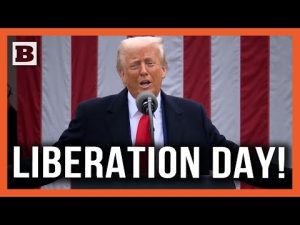As the political winds shift and the stock market sails smoothly, folks on the conservative side of the aisle can’t help but wonder: where is the Democrat Party headed? Some people consider claiming the title of “moderate,” thinking of leaders like Gavin Newsom, while others may be ready to double down on the more radical ideas that have defined their party. Insert JB Pritsker, a figure who seems to bridge the gap between flamboyant political ambitions and questionable governance, leaving everyone to ponder his next move on the national stage.
JB Pritsker, the current governor of Illinois, is looking more and more like he’s setting his sights on a presidential run. It’s like watching a goose prepare for migration, only this goose has a bank account worth $3 billion and a platform that seems more interested in self-aggrandizement than improving the lives of Illinois residents. His recent comments about the so-called “gay agenda,” which he presented at a Human Rights Coalition event, have sparked chatter about what influence he truly believes he has over the electorate. Anyone paying attention can’t help but notice that his ambitious nature often eclipses his focus on the needs of thousands of Illinoisans who are in a genuine struggle.
It’s hardly a surprise that someone with aspirations like Pritsker has begun to adopt the language of the radical left. His obsession with “fighting Nazis” feels less like a genuine concern and more like an ongoing performance piece aimed at securing his role as the progressive champion. However, this raises the question: What translates into tangible accomplishments for the people he governs? Historically, governors who choose to prioritize sensational catchphrases over actionable policies often find themselves swimming against a very strong current.
Conversations surrounding Pritsker often veer into the precarious territory of his lockdown policies in response to the COVID-19 pandemic, which left many residents feeling stifled and frustrated. The state had some of the strictest rules, yet he showed little restraint when it came to addressing the looting that plagued his state during those chaotic times. One can only imagine what kind of leadership he would bring to Washington, where he might find that fighting imaginary battles and obsessing over antagonists does little to address the issues that families face every day.
Pritsker’s primary tactical move seems to be securing the votes of new migrants flooding into Illinois, hoping that their allegiance will translate into political victories in local elections. This strategy raises eyebrows, particularly as many residents remain skeptical about the implications of such moves on their rights and daily lives. It becomes a larger conversation about the balance of freedom and governance, especially when Illinois residents—from legitimate citizens to newly arrived migrants—are caught in this political chess game.
In an era where figures like Pritsker emerge with hefty bank accounts and bold promises, the real question remains: Is America prepared to bet on a Pritsker presidency? While laughter may be a defensive mechanism, it’s essential to stay engaged and alert. The outcome of this political drama could reshape the future of the nation in unforeseen ways, and for now, Pritsker is playing to win—one questionable statement at a time. As they say, “keep your friends close and your ambitious governors closer.” Who knows what he’ll cook up next!







